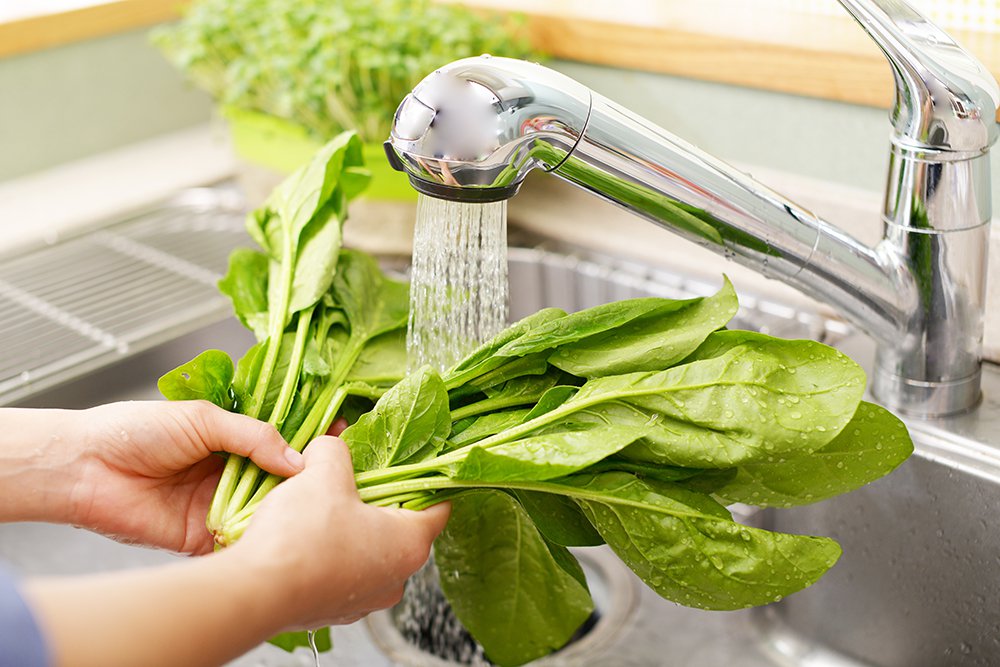
27 Jan 7 Smart Ways to Make the Most of Your Grey Water
No matter which way you look at it, fresh water is a precious resource that we are, all too often, far too cavalier about. We flush the loo, wash our hands, fill the kettle, boil the spuds, and so on, without ever really thinking about where this water comes from, and how much of it is left. They say that the next world war won’t be fought over politics or religion, but over access to fresh water, and while that might be alarmist, it bears thinking about.
Here in the Western Cape, we’ve had several years of low rainfall, resulting in lower than normal dam levels and our current water restrictions. We’ve spoken before about quick ways to save water, but there are so many ways to go about water saving, here are some more ways to make the most of the water you do use, and save some extra you might not have thought of.
Rinsing
- Whether it’s veggies for dinner, plates after washing up, hands, whatever, get out of the habit of running the tap and into the habit of filling a prep bowl. This can save litres of water, and you can use the water from the bowl in the garden.
- Use this Greenman Fruit & Vegetable Wash in the veggie rinse bowl and keep everything squeaky clean
Kitchen
- Keep a bottle (like this stainless steel bottle, which you can drink from, and reduce washing up) in the fridge in hot weather.
- If you’re keeping water from cooking to water the garden, just make sure it’s not salted, as that can kill many plants
- Run the dishwasher (and washing machine) when it’s full, and never rinse before washing, as the food residue on the dishes is actually part of how the dishwasher works
- Use eco-friendly dishwashing liquids and detergents (we love Triple Orange All Purpose Wonder Gel, it’s awesome), because kitchen water is generally not used in grey water systems, so it goes into the sewers, which we should also aim to keep chemical free, as it ends up in the environment.
Geyser runoff
- Hot water cylinders are designed to have an overflow valve, through which water leaks almost all the time. Most geysers drip out about 2 litres of water every day, which can evaporate in your ceiling, if your pan is set incorrectly, or can drip outside. You could also collect the water and use it in your garden, if you know it’s there.
Rainwater
- 2.5cm of rain doesn’t seem like a lot, but on a 185m2 roof area that can amount to about 5000 litres of water that just runs off into the sewer system.
- Re-design your gutter system with a Superhead to save that water in a rainwater tank. Use that water in the garden, the pool or to wash your car.
Shower
- Shower rather than bath, the average 10 minute shower uses about a quarter of the water a bath requires
When you’re running the shower to get to the hot water, run it into a bucket - Remember to use eco-friendly shower gel, shampoo, and soap in the shower if you have a grey water system. I love the affordable Natural Lab range, as well as Victorian Garden and Africa Organics, and Pure Beginnings for kids
Toilet
- Hear me out, before you reject this one. Each flush of the toilet uses between 2–5 litres of water depending on your model. Despite the smell and colour, urine is really quite clean, as it contains a lot of ammonia, which is used in many conventional cleaners
- Use the saying “if it’s yellow, let it mellow; if it’s brown, flush it down” as a rule in the house to save up to 5 litres of water at each bathroom visit
Garden
- Installing a grey water system could be the difference between a lovely green oasis, and a dry, dusty bowl
- The system will filter runoff water from your bathroom and washing machine, and then pump it straight out to your plants using a drip irrigation system
- Use eco-friendly detergents if you’re using a grey water system to reduce chemical levels in the garden, and prolong the life of your clothes
- Remember to put down mulch wherever there is exposed soil. This slows evaporation, and keeps topsoil from blowing or washing away
- Plant water-wise plants, as they will fare the best in the hot, dry, often windy conditions we have.
If we all take these habits and use them to educate our kids, friends, family and coworkers, we could make sure we never head into proper drought conditions. But if we carry on wasting this precious resource, who knows where we’ll end up?
Written by Sigrid Kenmuir



Suzan McCreadie
Posted at 04:51h, 26 SeptemberIt’s easy to catch shower water in a large bath or black crate (the not-used bath is perfect space for this) and with a small bucket use this water for flushing. Saves gallons.